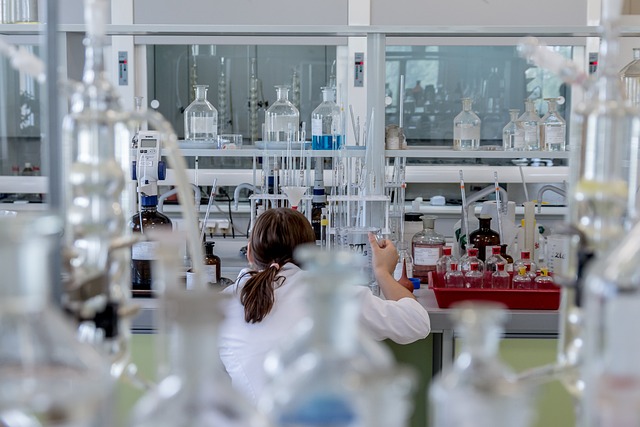
Eye on the UK – Research & Innovation Boost Thanks to Major Investment from UKRI
08/05/2024 / General help and advice / posted by Tim Aspey
Eye on the UK – Research and Innovation Boost Thanks to Major Investment from UKRI
The United Kingdom's research and innovation landscape is set to receive a £388 million investment in five key infrastructure projects.
An additional £85 million will support the UK Research and Innovation (UKRI)'s Digital Research Infrastructure Programme, to help prepare for future breakthroughs.
These projects will cater to a range of needs, from digitizing the UK's natural science collections to enhancing international collaboration and building the country's knowledge base in mass spectrometry.
Michelle Donelan, the UK Secretary of State for Science, Innovation, and Technology, emphasized the importance of providing UK innovators with “cutting-edge tools” to advance “groundbreaking work”.
The £473 million investment infrastructure will support initiatives such as digitizing specimens for pandemic prevention, developing a powerful microscope for drug design and enhancing information sharing so that data is easily findable.
Professor Mark Thompson highlighted that the investments will provide the research and innovation community with essential tools for exploring and advancing science and technology. This will position the UK as a major player on the global stage of research and innovation.
DiSSCo UK
DiSSCo UK (Distributed System of Scientific Collections) is a 10-year initiative set to revolutionize the digitization of natural science collections in the UK. With over 138 million items spanning 4.6 billion years of history, DiSSCo UK aims to use cutting-edge digitization technologies to facilitate scientific exploration and socio-economic benefits.
With science assets under common curation under a formal agreement between natural history museums, scientists will have access to valuable data about European natural science assets.
This type of project digitally unifies all European natural history collections, which could help to address global challenges such as biodiversity loss and pandemic preparedness.
This initiative could yield around £2 billion in economic advantages for the UK in key sectors such as food and health.
In the largest ever formal agreement, DiSSCo UK will work with over 90 organizations across the country, including natural history museums, botanical gardens and other centers of information, to make data accessible, interoperable and reusable.
RUEDI
The Relativistic Ultrafast Electron Diffraction and Imaging (RUEDI) facility features a high-energy electron microscope making it the fastest electron diffraction facility worldwide.
RUEDI is set to receive a £124.4 million investment from the UKRI Infrastructure Fund.
With world class research infrastructures for ultrafast imaging, RUEDI will position the UK at the forefront of research, providing a competitive advantage in observing, quantifying and understanding dynamic phenomena.
This facility will drive scientific breakthroughs in sustainable energy, advanced materials, quantum technologies and structural biology.
With the ability to explore atomic diffusion mechanisms central to sustainable energy technologies, probe biological functions within living cells for enhanced drug design, examine material integrity during explosive events and manufacturing processes, and explore the synergy of electrical and magnetic fields in quantum computing, RUEDI offers insights into fundamental processes and reactions.
The real potential of RUEDI lies in its capacity to directly observe and measure dynamic structural and chemical processes in real time.
RUEDI will be based at The Science and Technology Facilities Council (STFC) Daresbury campus in Cheshire.
C-MASS
The collaboration with the US Department of Energy (DOE) is a significant step towards advancing detector and accelerator infrastructure.
With a £58.8 million investment, the project will combine expertise from two STFC national laboratories, multiple universities, the Cockcroft Institute for Accelerator Science and Technology, and the Electron-Ion Collider (EIC) in New York.
Critical Mass UK (C-MASS) will create a national hub-and-spoke infrastructure to enhance the UK's mass spectrometry capabilities, enabling large-scale screening and accelerated data sharing to ensure that all the data is widely accessible.
DRI
The UK Research and Innovation (UKRI) is set to provide an additional £85 million into the Digital Research Infrastructure (DRI) program.
This funding will support enhancements in digital services, including computing, data management, software and skills training. The DRI program will improve research capabilities and drive transformative outcomes across diverse domains.
Focus will be on authentication, authorization, accounting infrastructure (AAAI), cybersecurity and software maintenance funding mechanisms.
The program will also prioritize the development of a net zero digital research infrastructure (NZ DRI) network, to lead sustainability efforts.
UKRI will expand its data services with pilot initiatives from the program's initial phase and advancing tools for enhanced data discovery and access for collaboration and knowledge exchange.
UKRI will also establish National Computational Research Services, which will feature compute and data storage hardware, service provision, and research software engineering support. The initiative will increase user access to high-performance computational research resources.
This approach ensures the seamless integration of computational resources, driving innovation and accelerating research outcomes in a secure and sustainable way.
By encouraging skill development and knowledge sharing, the UKRI will build the nation's capacity to deliver world-leading research and innovation outcomes.
NetworkPlus
UKRI will allocate funding for an interdisciplinary 'NetworkPlus' initiative to address challenges related to digital research technical professional skills across the research and innovation landscape.
This initiative builds upon the recent announcement of £8 million in investment, supplemented by an additional £8 million from the Engineering and Physical Sciences Research Council (EPSRC).
These resources will support 11 community-driven projects focused on providing targeted training and development opportunities for research technical professionals.

